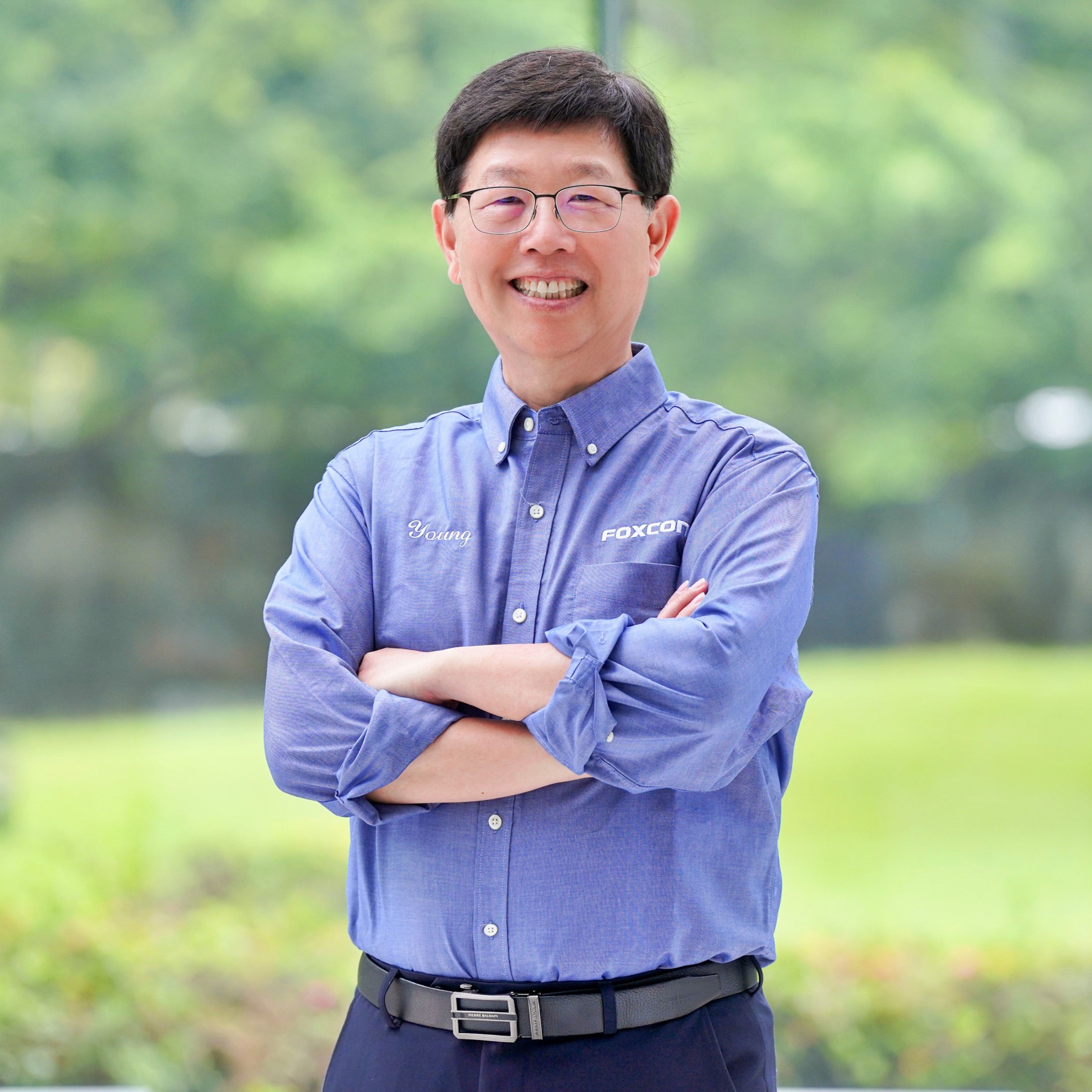
Sustainability is our most profound and sincere commitment to the Earth. In the face of rapid changes in the global economy and technology, Hon Hai has always firmly adhered to the concept of “sustainable operation = EPS + ESG” and has collaborated with the top partners globally to create a bright future together.
We are honored to have been selected for the first time in the 2025 S&P Global Sustainability Yearbook, and have been awarded the “Industry Mover” honor for our outstanding performance in Environmental, Social and Governance (ESG). Looking ahead to the next three years, the company is expected to continue developing steadily in the ICT field and maintain its leading position. AI is Hon Hai’s second growth engine and core driving force, while electric vehicles are the third. Under the three growth engines, we continue to strengthen smart manufacturing and intelligent technology research and development, and strive to build an efficient and environmentally friendly production system. By integrating artificial intelligence, big data and automation, we optimize production processes, improve product quality and energy efficiency. At the same time, we actively promote cross-sectoral innovation cooperation. In 2024, we continued to increase R&D investment, with 1,921 patents approved and R&D funds reaching NTD 115.77 billion. We also accelerated the transformation and application of technologies to ensure our competitiveness in the global market.
Green solutions and circular economy are our unwavering development strategies. We combine innovative technologies with renewable energy to inject strong momentum into sustainable development. Last year, the proportion of renewable-powered electricity used by the group increased to 67.38%, demonstrating our firm commitment to low-carbon transformation. In addition, Hon Hai officially joined the RE100 initiative in July 2024, committing to using 100% renewable electricity by 2040. Our net zero emissions target has also been approved by SBTi (Science Based Targets initiative), marking an important milestone in responding to climate change with scientific methods. We firmly believe that people-oriented and inclusive diversity are the foundation of a company’s sustainable development and competitiveness. We are committed to creating a diverse, inclusive, happy and equal workplace environment where every employee can work with peace of mind, realize their self-worth, and grow together with the company. To achieve this vision, the group has actively promoted inclusive diversity policies, and the proportion of female managers in all dimensions has increased to over 30%. In 2024, we invested heavily in talent development, with a total training hour of 46.15 million and a total cost of NTD 23.67 million. The average training hours per employee reached 60.3 hours, demonstrating our high regard and long-term commitment to employee growth. At the same time, to further improve the human resource governance mechanism, we have formulated the “Measures for Important Employee Event Personnel Evaluation” to ensure that all major personnel decisions are transparent and fair. In our global layout, we continue to promote standardized dispatch management, fully implement the principles of “zero-fee employment” and “equal pay for equal work” and explicitly prohibit the transfer of contracts to protect labor rights and demonstrate our firm commitment to fairness, justice and human rights.
In 2024, Hon Hai was once again awarded the “Best Company to Work for in Asia” by HR Asia and simultaneously won four Brandon Hall Excellence Awards in the United States, covering learning technology, diversity and equality, leadership development and strategic support. This fully demonstrates our high commitment to talent development and organizational governance, and also confirms that the people-oriented sustainable concept has been internalized into the corporate culture and continues to expand its positive influence. Sound governance is the cornerstone of a company’s stable development and an important force to win external trust. We continuously refine our risk management system. The Board of Directors has approved the “Risk Management Policy”, and the Audit and Risk Committee leads the promotion of risk governance. We build a flexible and forward-looking management system, enhance information flow and cross-departmental collaboration efficiency, further strengthen the organization’s response capabilities and decision-making quality, and inject solid momentum into the company’s long-term development. In terms of the supply chain, we actively promote responsible management. Through audits and cooperation, we strengthen suppliers’ practices in environmental protection and labor rights, and continuously deepen carbon inventory and emission reduction. Together, we create a low-carbon and resilient supply system. In 2024, the group completed the identification, assessment, and response framework for conflict minerals in the supply chain and conducted due diligence on 2,166 suppliers. Additionally, 36 suppliers have completed green electricity usage declarations, collectively using approximately 169 million kilowatt-hours of green electricity and reducing carbon emissions by about 96,000 tons, demonstrating the supply chain’s proactive role in the energy transition.
In community engagement, we combine corporate resources with local needs to promote public welfare, education, and care programs, deepen connections with the community, and work with all sectors to create an inclusive and progressive living environment. In 2024, the total volunteer service hours reached 189,000, and the total investment in society exceeded NTD 96 million. In 2025, Hon Hai will release new long-term ESG goals, determining the medium and long-term sustainable development direction for the next five years, covering circular economy layout, low-carbon energy application, social integration development, and sustainable value chain, and striving to integrate ESG spirit into every decision and daily operation.
We sincerely thank every colleague for their efforts and perseverance in their respective positions with the spirit of “integrity, diligence, and agility”, and also thank the trust and support from the industry, partners, and stakeholders, which enable Hon Hai to continuously move forward and progress.
Sustainability is not an endpoint but a long-term journey. Under the spirit of “sharing, cooperation, and mutual prosperity”, Hon Hai will continue to act with a global perspective and local actions, join hands with partners to build a resilient future, and forge a low-carbon, inclusive, and sustainable path that belongs to us.


